50 years ago women organized and joined together to demand better working conditions from their bosses, their companies and policymakers. They staged highly-visible actions designed to confront power and disrupt the status quo; they demanded respect, equal pay, and equal protection in the workplace.
Over the last fifty years, 9to5 has evolved to understand and challenge how racism and sexism interact and play out in the workplace and our everyday systems and how the continued legacy of racist, classist, and sexist policies and practices places the most acute burden on low-wage workers, women of color, nonbinary people and our families. With racial and gender justice as our goal we have taken bold action with our members to work toward an economically just future.
Below are some highlights from the last 50 years. We know we are missing incredible wins and photos from the past 50 years. If you have pictures or highlights you would like to share, email us at info@9to5.org
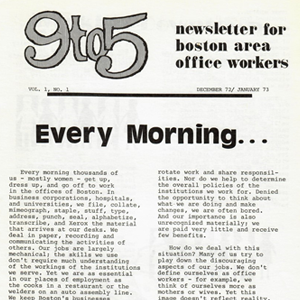

9to5 hosts its first meeting in Boston. Karen Nussbaum, Ellen Cassedy and other clerical workers fed up with the inequities, unfairness, and outright harassment they were experiencing in the workplace begin to organize for better workplaces for working women.
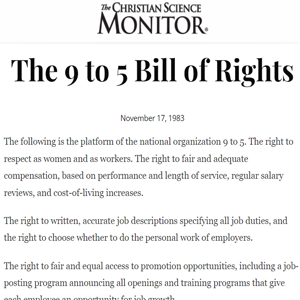

9to5 makes a big splash at a hearing in April of 1974 on the state of office workers. They release an Office Workers Bill of Rights including rights around equal pay, job postings. overtime pay, medical coverage, maternity leave, discrimination and grievance procedures.
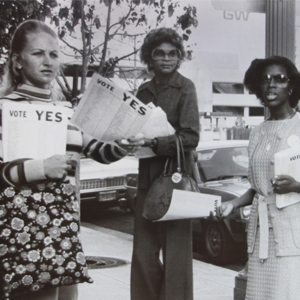

9to5 forms a union for office workers, Local 925.
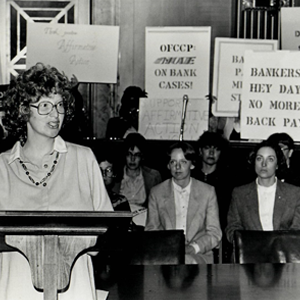

Three publishing companies agree to pay $1.5 million in backpay for women and people of color.
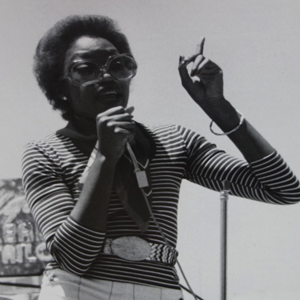

9to5 helps advocate for the passage of the Pregnancy Non Discrimination Act, which made it illegal to discriminate against pregnant workers.
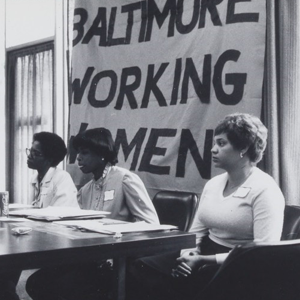

9to5 wins $6 million in raises for workers at six Baltimore banks. 9to5 hosts its summer school at Bryn Mawr College in Philadelphia, bringing together organizers from across the country.
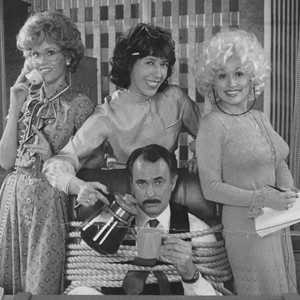

Inspired by the stories of 9to5 members and organizers, actress and activist Jane Fonda and her production company set out to produce a comedy film starring Fonda, Lily Tomlin, and Dolly Parton. Parton also wrote and released a hit song for the movie, also titled 9 to 5. The hit film inspired a later sitcom and a Broadway musical.
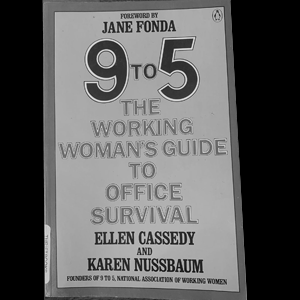

9to5 changes its name to 9to5, National Association of Working Women. Ellen Cassedy and Karen Nussbaum publish 9to5: The Working Woman’s Guide to Office Survival.


9to5 launches the toll-free Job Survival Helpline. The helpline operated for about 30 years before closing in 2019.
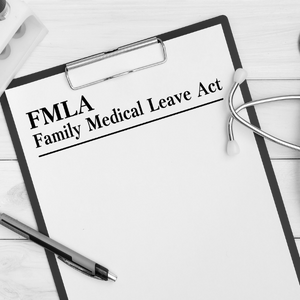

Ellen Bravo and Ellen Cassedy publish The 9to5 Guide to Combating Sexual Harassment.


9to5 Colorado leads the charge to pass state legislation that expanded protection against sexual harassment.


9to5 Wisconsin passes a paid sick day ordinance for Milwaukee with 70% voter support.


President Obama signs his first piece of major legislation, the Lilly Ledbetter Fair Pay Act. 9to5 advocated for this legislation that ensured workers have the right to file claims of discrimination.


9to5 Georgia helps advocate and pass “ban the box” legislation that prevents employers from asking about criminal history on job applications.


9to5 Colorado works with residents of Denver Meadows to organize against displacement from their homes and settle issues with management who was pushing them out in order to sell the land for redevelopment. This fight will go on to influence the shaping of multiple state policies in colorado to better protect renters, tenants, and mobile homeowners.

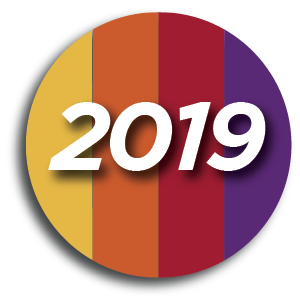
9to5 Colorado helped pass the Equal Pay for Equal Work Act, a significant step toward closing the wage gap. Provisions of the bill included requirements around pay transparency and banning employers from asking for salary history.


On November 3, 2020, Colorado made history as the ninth state in the country to pass Paid Family and Medical Leave into law and the first state to ever secure Paid Family and Medical Leave through a ballot initiative.


9to5 Georgia helps advocate for and pass paid leave for state workers.

